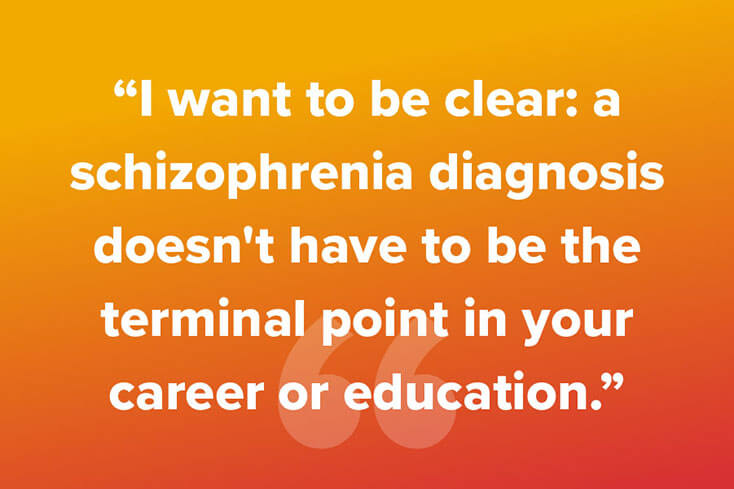October 14, 2021
By Max Guttman

During the early stages of my recovery from schizophrenia, I had two goals in mind: working and healing. I was tired, not just from my symptoms or side effects from my medications, but from lying in bed and feeling useless. I wanted to do more.
My parents were instrumental in helping me shed the deeply-internalized fear that my diagnosis would limit my future. They reminded me that if I took care of myself, my career would follow. Their advice proved to be invaluable as I’ve navigated my career while in recovery.
With the support of my therapist and a good psychiatrist, both of whom prioritized a commitment to self-care, I went back to graduate school in social work. Within two years, I graduated from SUNY Binghamton — the same college I had withdrawn from years earlier after a mental health episode — with a Master’s in Social Work.
My personal experience, I found, actually benefitted me early on in my career. As a young licensed social worker, I taught my clients about the self-care concepts that had served me. Later on, I would teach self-care at the graduate level. Returning to the classroom as a teacher served as a powerful reminder that I had come just about full circle since my initial illness. Many of my students would go on to become therapists, reinforcing the importance of self-care to their patients, similarly to the way my therapist had done a decade prior.
Today, I am knowledgeable and confident in my skills. But, this wasn't always the case. Schizophrenia struck me at what felt like the most inopportune time, right the peak of intellectual ability and personality development. The timing of the diagnosis was hard, and it can be difficult for many people to manage this kind of news at a critical point in their personal and professional development. But I want to be clear: a schizophrenia diagnosis doesn't have to be the terminal point in your career or education.
So, when you go back into the classroom, remember that you can choose the career you want. Please, don't let your symptoms, as tricky as they may be to deal with, dictate what you want to do in life.
Should work or education prove to be “too much” or triggering, look inward, and ask yourself: are you taking the best possible care of yourself as possible? If you cannot identify the reason or roadblock that is triggering you or activating your symptoms, and making it difficult to work or study, consult with a therapist or troubleshoot with a psychiatrist. Be kind to yourself, and don’t give up.
Just like the flu, some symptoms make it too difficult (or even unsafe) to do our jobs correctly. But these are blips and moments that do not need to influence your potential for lifetime of achievement!
We’re always accepting submissions to the NAMI Blog! We feature the latest research, stories of recovery, ways to end stigma and strategies for living well with mental illness. Most importantly: We feature your voices.
LEARN MORENAMI HelpLine is available M-F, 10 a.m. – 10 p.m. ET. Call 800-950-6264,
text “NAMI” to 62640, or email. In a crisis, call or text 988 (24/7).